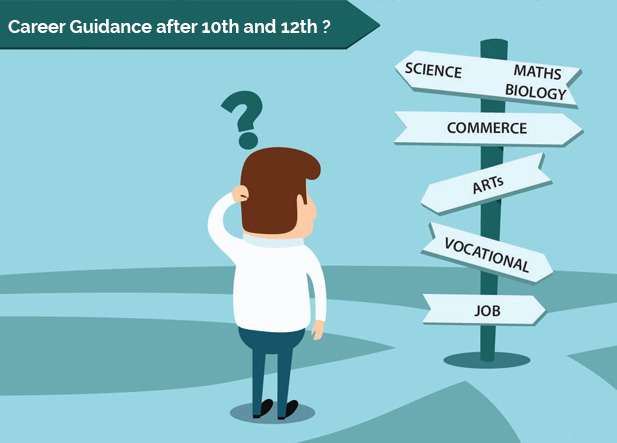By Aubaid Ahmad Akhoon
After completing their 10th grade, many students in Kashmir face one of the most defining moments of their academic lives—choosing subjects and career streams. For most, this decision is made under pressure, guided less by personal aptitude and more by parental expectations, peer influence, or the weight of family prestige. The consequences of such choices are often profound. Students who later realize that their academic paths do not align with their interests or abilities may suffer stress, disillusionment, and, in some tragic cases, even contemplate drastic measures.
The root of this problem lies in the absence of effective career counseling. In Kashmir, structured guidance for students remains scarce. Families, caught between traditional notions of success and rapidly shifting job markets, often fail to provide informed advice. Instead of weighing options with professional clarity, many students simply follow what their peers are doing or what their parents consider respectable. This lack of direction can derail even the brightest of minds, leaving them trapped in courses that lead neither to personal fulfillment nor to rewarding careers.
Career counseling, therefore, is not a luxury but a necessity. At its best, it goes beyond helping students select a subject or profession. It takes into account psychological well-being, emotional resilience, and long-term career prospects. A trained counselor is able to assess students’ strengths and weaknesses, align them with realistic opportunities, and offer encouragement when anxiety and confusion cloud decision-making. In this way, counseling becomes a safeguard against the wasted potential that results from blind choices.
Across the world, career counseling has emerged as an indispensable part of education systems. Counselors guide students towards emerging fields, explain the importance of acquiring market-relevant skills, and prepare them for the evolving demands of the global economy. In Kashmir, however, the absence of these services has left a vacuum. Degrees obtained without informed planning often end up being seen as pieces of paper with little value in the job market. This mismatch between education and employment contributes to rising frustration among young people, many of whom feel betrayed by a system that offered them qualifications but not opportunities.
Addressing this issue requires more than token interventions. Kashmir needs career counseling centers embedded in schools and colleges, equipped with trained professionals who can provide personalized guidance. These centers should not only advise students about academic streams but also expose them to diverse professions that go beyond the traditional fields of medicine, engineering, or government service. In addition, outreach programs must be designed to reach underprivileged students who may lack access to counseling or online resources.
Awareness is equally important. Parents and teachers must be sensitized to the role of career counseling, moving away from the belief that success lies only in a handful of professions. Workshops and training sessions for educators can help create an ecosystem where career guidance becomes an integral part of schooling. Furthermore, partnerships with industry professionals can add depth to this effort by giving students a window into workplace realities and future job trends.
The role of a career counselor demands more than academic qualifications. It requires empathy, strong communication skills, analytical thinking, and the ability to inspire confidence in students who may be struggling with uncertainty. While degrees in psychology, human resource management, or counseling can enhance credibility, the most effective counselors are those who combine knowledge with genuine concern for the student’s well-being. As the global economy grows more complex and career choices multiply, the demand for such professionals is rising rapidly. Schools, colleges, NGOs, and even private practices now offer opportunities for career counselors, and their relevance in Kashmir will only grow in the years ahead.
The financial prospects of this profession are also significant. Depending on expertise and reputation, counselors in India can earn anywhere from 1,000 to 20,000 rupees per case. With the right credentials and a proven record, many go on to establish independent practices or collaborate with institutions, offering flexible and rewarding careers for themselves while shaping the futures of others. For young people considering this profession, the path begins with higher secondary education, followed by certifications or degrees in counseling or related fields. Practical experience through internships, along with advanced studies, further strengthens their prospects.
Ultimately, the larger question is not just about producing more career counselors but about ensuring that students in Kashmir have access to guidance that is consistent, reliable, and empathetic. At present, too many young people are forced to make life-changing choices in isolation, influenced by social pressures rather than genuine interest. This not only wastes individual talent but also hampers the broader development of the region, which desperately needs skilled professionals across a wide spectrum of fields.

Investing in career counseling is, therefore, an investment in the future. By helping students choose wisely, we can ensure that their education leads to real opportunities rather than disillusionment. More importantly, we can safeguard their mental health, give them a sense of direction, and build a generation that is confident, capable, and ready for the challenges of a rapidly changing world.
The time has come for policymakers, educators, and parents in Kashmir to recognize that career counseling is not optional but essential. Establishing counseling cells across schools and colleges, integrating career awareness into curricula, and encouraging professional training for counselors should be immediate priorities. If pursued with seriousness, these steps will ensure that degrees in Kashmir hold real value, that students are prepared for meaningful careers, and that the next generation enters adulthood not with hesitation, but with hope.
The views expressed in this article are solely those of the author and do not necessarily reflect the opinions or views of this newspaper. The author can be reached at [email protected]